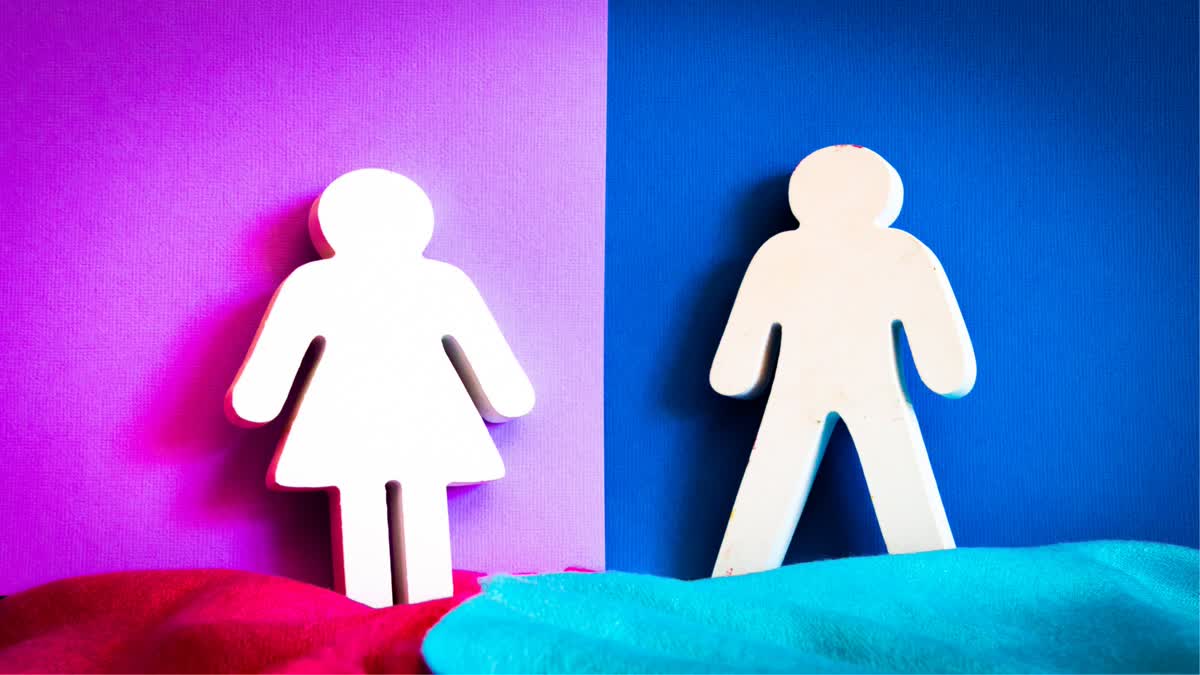United Nations: The UN goal of achieving gender equality by 2030 is impossible to attain because of deeply rooted biases against women around the world in heath, education, employment and the halls of power, the United Nations said in a report Thursday.
"The world is failing women and girls," UN Women, the agency promoting gender equality, and the UN Department of Economic and Social Affairs said in "The Gender Snapshot 2023" report.
According to the UN's findings, "active resistance to gender equality and chronic under-investment are key factors in slow progress and, in some cases, reversals of gains already made". It said "unequal access to sexual and reproductive health, unequal political representation, economic disparities and a lack of legal protection, among other issues, prevent tangible progress".
Assistant Secretary-General Maria-Francesca Spatolisano told a news conference launching the report that gender equality is becoming "an ever increasingly distant goal".
-
The 2023 Gender Snapshot report from @UN_Women and @UNDESA is out now!
— UN Women (@UN_Women) September 7, 2023 " class="align-text-top noRightClick twitterSection" data="
👉Press release: https://t.co/7cyzubhls1
👉Report: https://t.co/3e6HzuFVJl#GenderData #GlobalGoals
">The 2023 Gender Snapshot report from @UN_Women and @UNDESA is out now!
— UN Women (@UN_Women) September 7, 2023
👉Press release: https://t.co/7cyzubhls1
👉Report: https://t.co/3e6HzuFVJl#GenderData #GlobalGoalsThe 2023 Gender Snapshot report from @UN_Women and @UNDESA is out now!
— UN Women (@UN_Women) September 7, 2023
👉Press release: https://t.co/7cyzubhls1
👉Report: https://t.co/3e6HzuFVJl#GenderData #GlobalGoals
She pointed to recent setbacks for women and girls living in fragile and conflict-affected countries, the impact of climate change, and "active resistance to gender equality and chronic underinvestment" that are slowing and in some cases reversing progress.
The report assessing the progress for women in achieving the 17 UN goals for 2030 on issues ranging from poverty and education to climate change and human rights paints a grim picture of the gender gap, and the "lackluster commitment" globally to equality for women.
On a key goal of eradicating extreme poverty, the report said, one in every 10 women today, or 10.3%, lives on less than USD 2.15 a day the extreme poverty level. If current trends continue, it said, 8% of the world's female population, 342.4 women and girls, will still be living in extreme poverty in 2030, most in Sub-Saharan Africa.
While overall access to education is rising for girls and boys, the UN report said millions of girls never enter a classroom or complete their education, especially in conflict areas. The goal calls for every child to receive quality secondary school education, yet in Afghanistan, it said, the Taliban rulers have banned education for girls beyond elementary school.
Also read- Gender neutral uniforms, safe washrooms: NCERT's manual for schools on transgender students
"In 2023, up to 129 million girls and young women may be out of school globally," the report said. "At current rates of progress, an estimated 110 million will remain out of school in 2030."
As for the goal of decent work, the report said less than two-thirds of women aged 25 to 54 61.4% -- were in the labour force in 2022 compared to 90.6% of men, and the women were paid far less.
"In 2019, for each dollar men earned in labour income, women earned only 51 cents," it said.
In jobs critical to the future in science, technology and innovation, the report said, "ongoing gender barriers limit women's roles", which is evident as the field of artificial intelligence takes off.
-
How are women & girls faring in the face of global crises?
— Global Goals (@GlobalGoalsUN) September 7, 2023 " class="align-text-top noRightClick twitterSection" data="
Find out where the world stands in its pursuit of #GenderEquality and the #GlobalGoals in the latest #SDG Gender Snapshot Report 📊🚺 🔗https://t.co/xp50XhTFRd pic.twitter.com/qUBcKT9boM
">How are women & girls faring in the face of global crises?
— Global Goals (@GlobalGoalsUN) September 7, 2023
Find out where the world stands in its pursuit of #GenderEquality and the #GlobalGoals in the latest #SDG Gender Snapshot Report 📊🚺 🔗https://t.co/xp50XhTFRd pic.twitter.com/qUBcKT9boMHow are women & girls faring in the face of global crises?
— Global Goals (@GlobalGoalsUN) September 7, 2023
Find out where the world stands in its pursuit of #GenderEquality and the #GlobalGoals in the latest #SDG Gender Snapshot Report 📊🚺 🔗https://t.co/xp50XhTFRd pic.twitter.com/qUBcKT9boM
Also read- For India's 'third sex', acceptance mired in colonial past
"In 2022, inventors listed on international patent applications were five times less likely to be female than male," it said. "In 2020, women held only one in three research positions worldwide and only one in five science, technology, engineering and math (STEM) jobs."
And in getting seats at decision-making tables, the report said, globally women hold only 26.7% of parliamentary seats, 35.5% of local government seats, and only 28.2% of management positions at work.
As for the goal promoting peace, the report said, conflicts are escalating around the world and "a shocking 614 million women and girls lived in conflict-affected contexts in 2022, 50% higher than in 2017".
The report by UN Women and ECOSOC warned that the continuing failure to make the achievement of gender equality a priority will put the achievement of all 17 goals "in peril".
Also read- Cupid strikes: Kabaddi teacher changes sex, marries student in Rajasthan
It called funding for programs promoting gender equality and the empowerment of women "inadequate, unpredictable and inconsistently distributed among countries," saying between 2020-2021 this government aid amounted to "a mere 4% of total bilateral aid, a notable decrease from 5% in previous years".
The report said an estimated USD 6.4 trillion per year is needed across 48 developing countries covering nearly 70% of the population in developing countries -- to achieve gender equality in key areas including ending poverty and hunger and supporting more equal participation of women in society by 2030. (AP)
(Except for the headline, this story has not been edited by ETV Bharat staff, and is published from a syndicated feed.)



